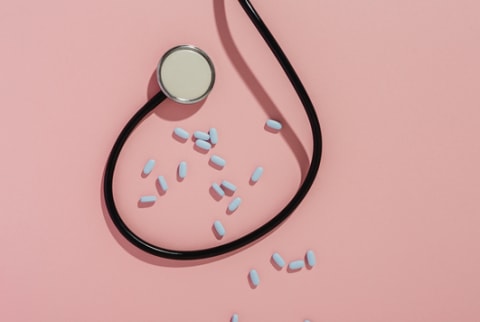Advertisement
The One Supplement This Psychiatrist Always Recommends To Her Patients


If you've ever had a "nervous stomach," then you've had firsthand experience with this connection. And while many of us have had these experiences, it's only recently that the gut has become more carefully studied in terms of its impact on mental health. There is increasing data4 that supports the existence of the gut-brain axis, which is the communication between your gut and brain. Since this is considered a two-way form of communication, a disruption in your gut can affect the health of your brain, and a disruption in your brain health can hurt your gut.
How your gut health rules your mental health—and vice versa.
Your gastrointestinal system has naturally occurring bacteria, called gut flora or microbiota, that help regulate your internal systems. At first this may seem confusing since we typically associate bacteria with germs, infections, and sickness; however, we now know that while certain strains of bacteria in your body can be harmful, the "good" bacteria peacefully coexist with your body’s immune system in a symbiotic relationship and ultimately help you. For example, this gut flora can help with the metabolism of your dietary fats, proteins, and certain vitamins. It can also help your body break down certain medications, provide a layer of defense against infection, and help your immune system function optimally by actually protecting you against those harmful strains of bacteria.
For these reasons, it's crucially important that we protect our gut function for optimal physical and mental health. Unfortunately, various conditions can actually harm these important bacteria. Some of these conditions are physical stressors—such as a course of antibiotics or an inflammatory bowel disease like Crohn’s—but others have more to do with your brain and mental health. For example, depression, anxiety, and various other mental health issues are associated with chronic bodily stress and inflammation. And this stress and inflammation create5 a poor environment for that gut microbiota, which can affect their survival.
Why I recommend probiotics to so many of my patients.
Based on several new studies that have started to emerge, I often recommend a probiotic to my patients. Probiotics are anti-inflammatory bacteria that naturally reside in your gut, but they can also be found in local drugstores as a supplement. A probiotic could help to support the growth and balance of the good bacteria against the unhealthy strains of bacteria in your gut.
Studies have examined probiotics in mental health, and the initial results look highly promising. Probiotics were found to have some helpful benefits in depressed and anxious patients6. And diets geared toward supporting the growth of this good bacteria were found7 to improve cognitive, emotional, physical, and digestive well-being. Further, when comparing probiotics to mental health medications, probiotics do not carry the same potential risks and side effects. As they are studied further—and as we understand more about the roles of good gut bacteria in depression—probiotics will likely become a more standard recommendation of all mental health professionals.
There are several other ways that you can protect your gut and thus protect your mental health as well. Good self-care, hydration, and getting adequate sleep are crucial. Avoid processed foods, and eat foods such as kimchi and kefir, which are also protective for these good strains of bacteria. So, remember this gut-brain connection, and that taking care of your mental health is key to your overall health and happiness.
Just a note: this article should not be taken as medical advice and for any specific medical questions, your personal physician should be consulted!
7 Sources
- https://www.ncbi.nlm.nih.gov/pubmed/26970128
- https://www.ncbi.nlm.nih.gov/pubmed/27027953
- https://www.ncbi.nlm.nih.gov/pubmed/26511978
- https://www.ncbi.nlm.nih.gov/pmc/articles/PMC4367209/pdf/AnnGastroenterol-28-203.pdf
- https://www.ncbi.nlm.nih.gov/pubmed/21040780
- https://www.ncbi.nlm.nih.gov/pubmed/21876150
- https://www.ncbi.nlm.nih.gov/pubmed/28614379